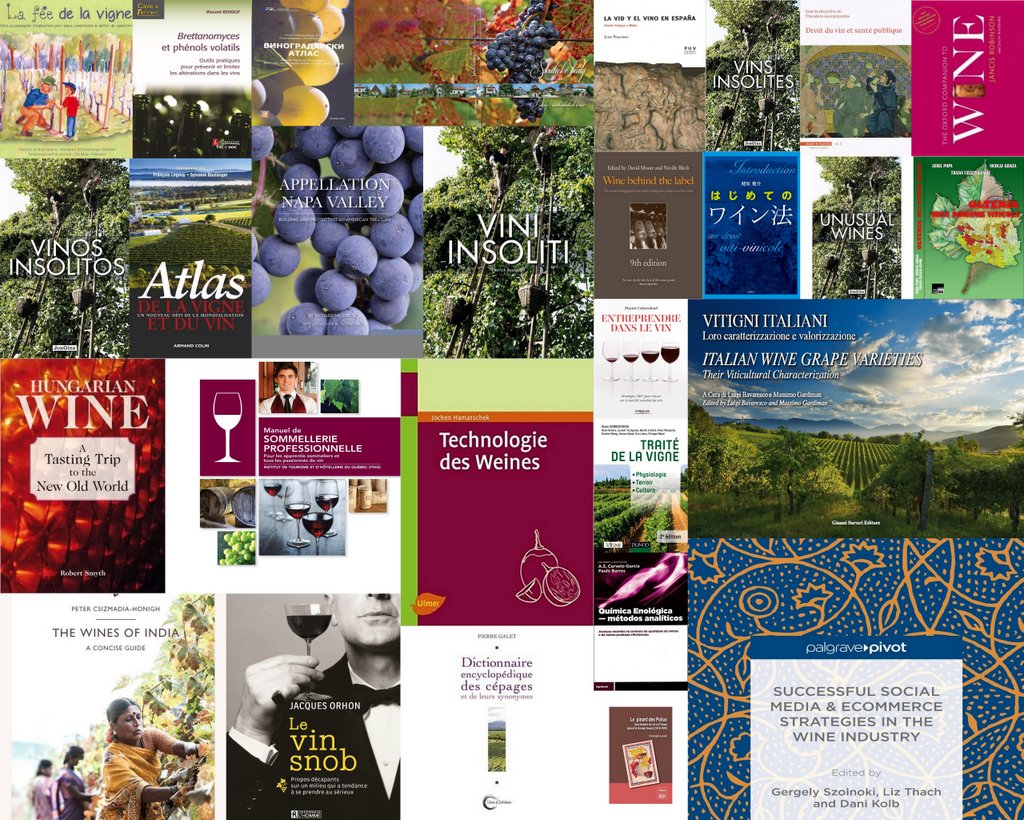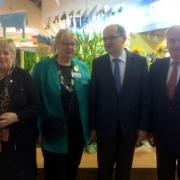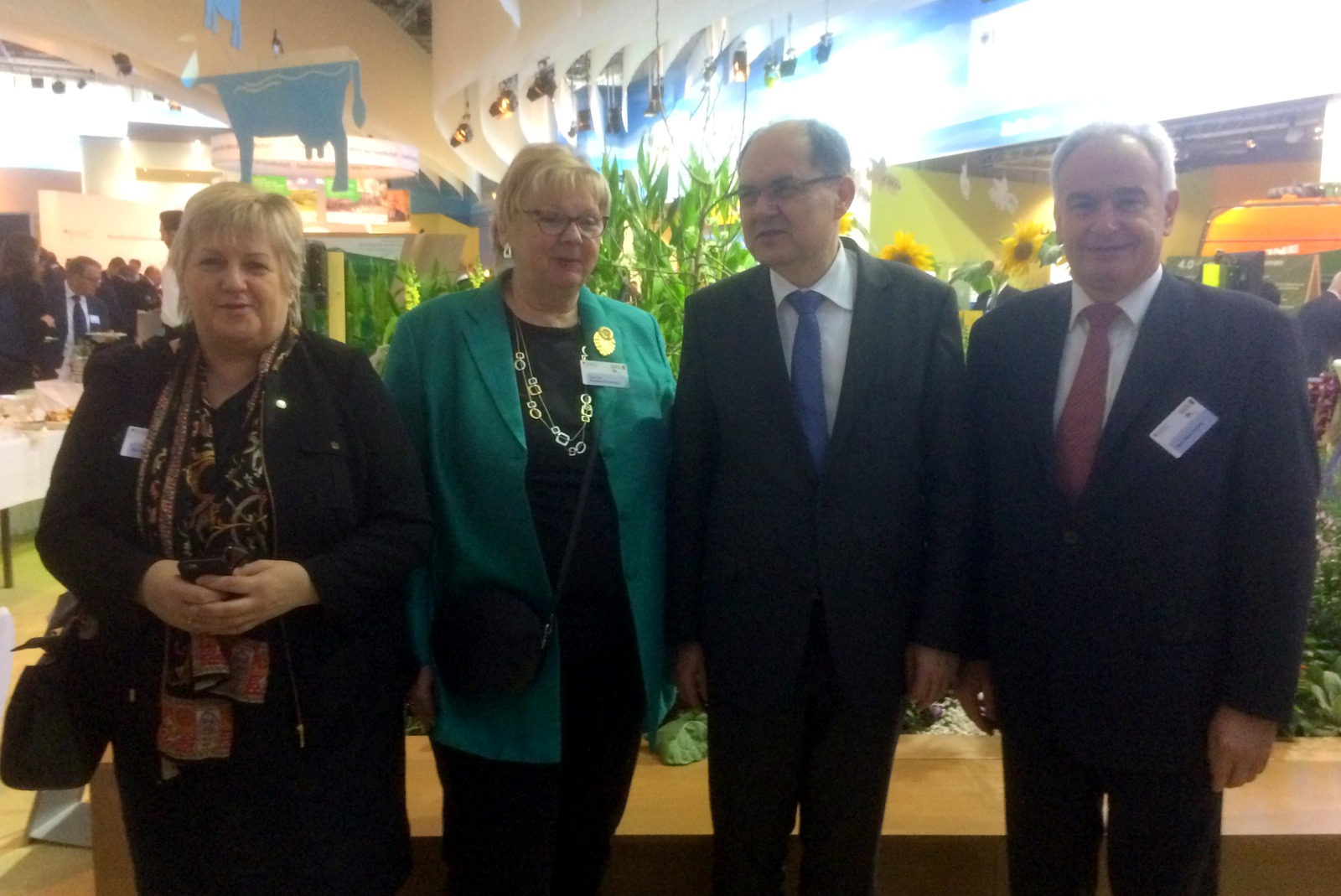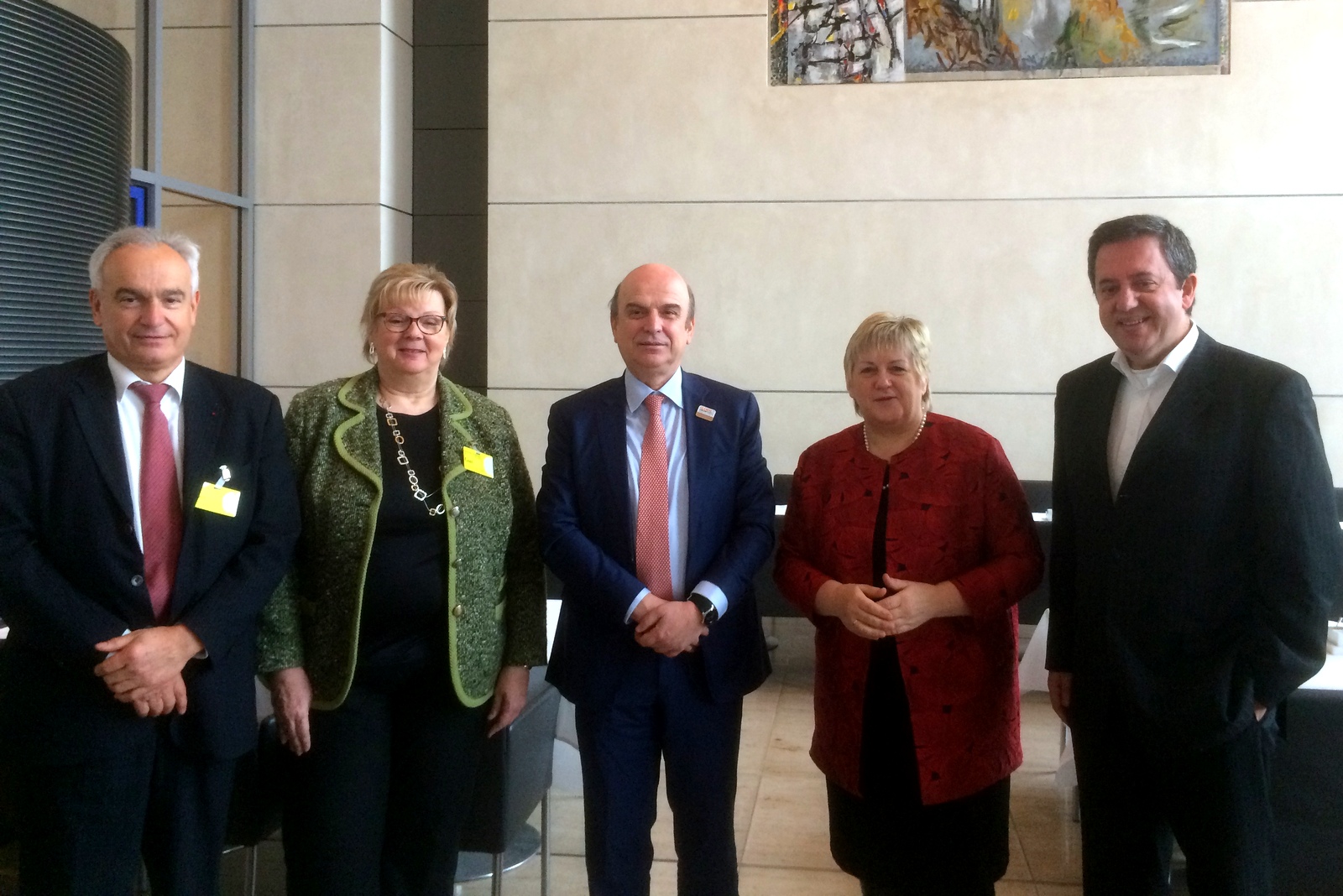
Details on www.oiv.int « OIV AWARD JURY and OIV AWARDS »
For any further information : jurydesprix@oiv.int
Journals, advertising and commercial documents are not accepted.
An award-winning book or not awarded book will not be presented to the Jury a second time.
New submission forms
« Form_Inscription_Livre_Book_JdP_2017.pdf »:
- Paper printed books and / or .PDF format / Kindle in the 10 categories.
« Form_Inscription_numeric_JdP_2017.pdf »:
- Interactive digital format only in the first five categories (1-Viticulture, 2-Œnology, 3-Vitivinicultural Economy and Law, 4-History, Litterature and Fine Arts, 5-Wine and Health).


On this occasion they had a number of meetings with the ministers and representatives of OIV Member Countries present at this event.

Additionally, at the initiative of Ms Kordula Kovac, member of the German Bundestag (national parliament) and also President of the "Wine Group", the OIV President and Director General again met with Mr Edmond Panariti, Albanian Minister for Agriculture. Mr Panariti confirmed having initiated the process designed to lead to the presentation of Albania's candidacy to the OIV.

A meeting with the Japanese Ambassador in Germany, Mr Takeshi Yagi, also made it possible to present the OIV, at a time when wine consumption is developing in Japan and quality vitivinicultural production is progressively being implemented.